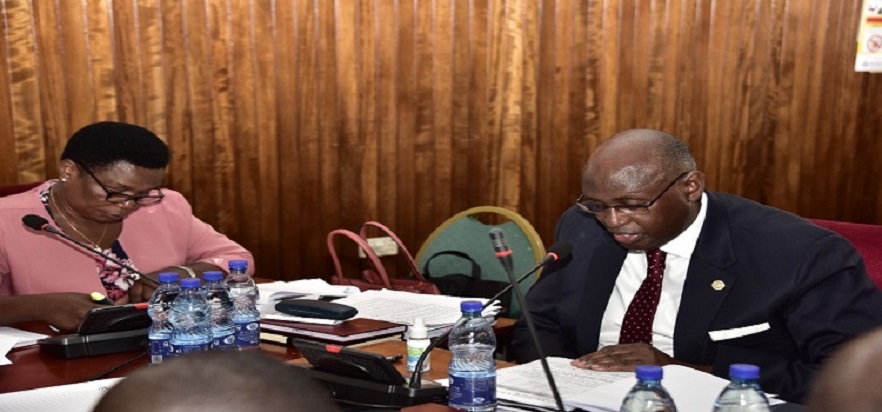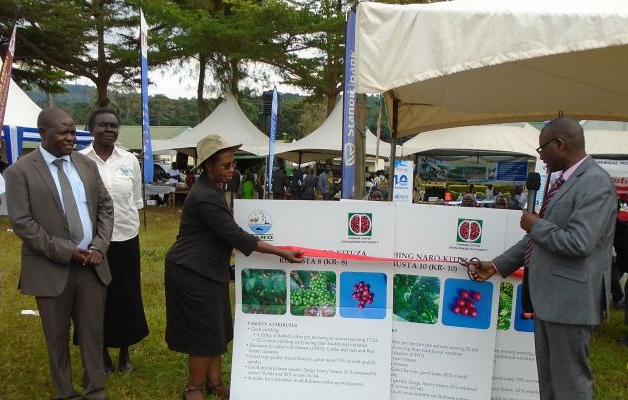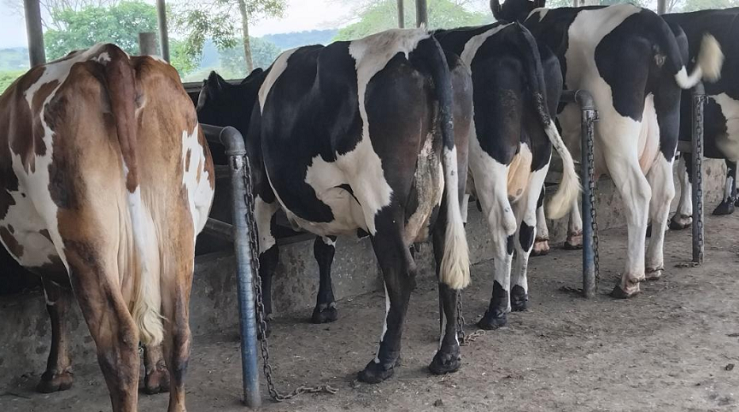Rwamirama (R) presenting the ministry’s Budget Framework Paper for next financial year. On his right is the chairperson of the committee, Hon. Okori-Moe
The Committee on Agriculture, Animal Industry and Fisheries has tasked the sector ministry (MAAIF) to focus its budget priorities on food security.
The committee Chairperson, Hon. Janet Okori-Moe said there is need for a clear strategy to handle food insecurity.
She added that availing money for seeds for such interventions under the Agriculture Ministry will enable government to facilitate interventions aimed at curbing food insecurity.
“Before such an issue goes to the Minister for Disaster Preparedness, how prepared are we as the Agriculture Ministry? What food production and food security arrangements do we have?” Okori-Moe said.
She cited food intervention to Karamoja of Shs1356 billon to handle starvation due to food insecurity, saying that an alternative provision of seeds for planting worth Shs50 billion would save government on costs of buying food.
Okori-Moe said this while chairing a meeting with officials from the Ministry of Agriculture, Animal Industry and Fisheries led by the State Minister for Animal Industry, Hon. Bright Rwamirama.
UPDF Representative, Maj.Gen Sam Kavuma called for provision of proper post-harvest handling support by the ministry, to beneficiaries of agriculture inputs in cases of managing food insecurity.
“What is going to happen after they have harvested this food? Is there any general plan as to who will handle the next phase of harvesting and storing these foods?” Kavuma asked.
Hon. Stella Apolot Isodo (FDC, Ngora District) reiterated the need for best postharvest handling techniques as well as values addition.
She noted that farmers in her constituency are suffering with post-harvest losses.
“Food insecurity is coming back to bite us because we are ignoring the local farmer who needs to be helped to preserve his sorghum so that he can sell it at a fair price,” Apolot said.
Minister Rwamirama said the concern on food security requires sufficient food production to cater for domestic consumption with a surplus for commercial purposes including export.
He added that interventions to manage food security include genetic improvement of crops that are resistant to disease and high yielding, plant and animal nutrition through irrigation.
“The sustainable solution for food security now is to convert idle pieces of land belonging to government and make them productive,” Rwamirama said.





